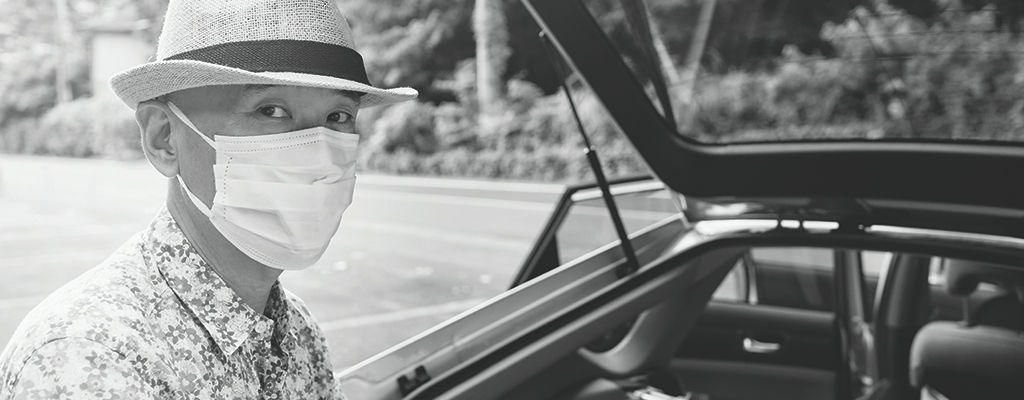In the United States, about 60% of adults have at least one pre-existing health concern. If you're one of them, you’ve likely heard that you may be at a higher risk for COVID-19. This is why it’s important for people with chronic conditions to get their vaccination as soon as possible. And it’s why this group started near the front of the line.
“For most people, the risks of getting the vaccine are very small compared to the risks of COVID,” says Cathleen Morrow, MD. “And for patients with conditions like hypertension, diabetes, or lung disease, the risk-benefit ratio is even more clear. It just doesn’t make any sense not to get the shot,” says Dr. Morrow, the chair of community and family medicine at Dartmouth-Hitchcock Medical Center in New Hampshire.
While any pre-existing condition can increase your risk, some conditions come with higher risks than others. Keep reading to get the specifics on why COVID-19 is particularly dangerous if you have COPD, diabetes, or hypertension — and learn how to stay safe until you can get your shot.
When you have COPD
Why COVID-19 can be so serious: According to a statement from the American Academy of Allergy, Asthma & Immunology (AAAAI), chronic obstructive pulmonary disease (COPD) “is a well-established risk for severe COVID-19.” COPD is an umbrella term for lung diseases like emphysema and chronic bronchitis, which block airflow and make it hard to breathe.
“If you have significant COPD, you already know what it’s like to be short of breath. It’s called ‘air hunger.’ And it’s one of the most uncomfortable and scary experiences a person can have,” says Dr. Morrow. Plus, research shows that the lungs of people with COPD are more susceptible to a severe COVID-19 illness. That's why COVID-19 patients with COPD are about two and a half times as likely to need intensive care. They’re also more likely to need help breathing from a ventilator.
One important note: This increased risk doesn’t appear to apply to people with asthma. There’s no conclusive evidence that they’ll have a worse COVID-19 illness than someone without asthma. According to the AAAAI: “Although the Centers for Disease Control and Prevention states that patients with moderate-severe asthma could be at greater risk for more severe disease, there are no published data to support this determination at this time.”
How to stay safe beyond the shot: Keep taking your medications to keep your condition under control. A huge bonus: There’s evidence that steroid inhalers could offer some protection against COVID-19.
When you have diabetes
Why COVID-19 can be so serious: “When people have chronically high sugars, their white blood cells — which attack invading germs — don’t work as well as they do in people without diabetes,” says Dr. Morrow. This helps explain why diabetes patients who get COVID-19 tend to have severe cases. In fact, about 40% of Americans who have died from COVID-19 also had diabetes.
How to stay safe beyond the shot: “The better your diabetes is controlled, the better your white blood cells work,” says Dr. Morrow. Check your blood sugar often and keep in close touch with your healthcare provider. They can increase your insulin as needed, she says. You should also eat balanced meals, drink water instead of sweetened beverages, get enough sleep, and find ways to reduce stress. And if you’re not physically active, talk to your provider about a fitness plan.
When you have high blood pressure
Why COVID-19 can be so serious: It’s well-known that high blood pressure, also known as hypertension, makes your heart work harder and damages your arteries. This happens slowly, over years, and the damage throughout your body can lead to long-term inflammation.
All that inflammation raises your chances of having severe COVID-19 — possibly because your immune system overreacts to the virus. This kicks off a dangerous response that can lead to tissue damage. This may be why COVID-19 patients with high blood pressure are more likely to suffer from pneumonia and organ failure.
How to stay safe beyond the shot: Stay in touch with your provider to make sure your blood pressure is in check. “Don’t delay getting the medical care you need because you’re scared of going to the office,” says Dr. Morrow. Be sure to ask about telehealth appointments too.
Lifestyle changes can also help lower your blood pressure and reduce chronic inflammation. These include maintaining a healthy weight, eating heart-healthy foods, getting regular exercise, and reducing stress. Deep breathing, yoga, and making time for hobbies can also help.
The information in this story is accurate as of press time and posting. Getting vaccinated is one of the best ways to limit the spread of the coronavirus. It’s also important to continue practicing social distancing (keeping at least 6 feet away from people outside your household) and washing your hands frequently. You should also be appropriately masked any time you’ll be in public. According to the CDC’s latest guidance, this means layering a disposable mask underneath a snug-fitting cloth mask or placing a mask fitter over your cloth mask to ensure a tight fit. Because the situation surrounding COVID-19 continues to evolve, we encourage readers to follow the news and recommendations for their own communities by using the resources from the CDC, WHO, their local public health department, and our COVID member site.
H0148_21_67_C_IA_04152021
Medi_21_39_LS_IA_04152021
Y0118_21_213A_C 04152021
Blue Shield of California complies with applicable state laws and federal civil rights laws, and does not discriminate on the basis of race, color, national origin, ancestry, religion, sex, marital status, gender, gender identity, sexual orientation, age, or disability. Blue Shield of California cumple con las leyes estatales y las leyes federales de derechos civiles vigentes, y no discrimina por motivos de raza, color, país de origen, ascendencia, religión, sexo, estado civil, género, identidad de género, orientación sexual, edad ni discapacidad. Blue Shield of California 遵循適用的州法律和聯邦公民權利法律,並且不以種族、膚色、原國籍、血統、宗教、性別、婚姻 狀況、性別認同、性取向、年齡或殘障為由而進行歧視。




